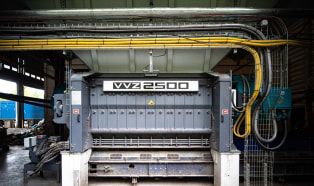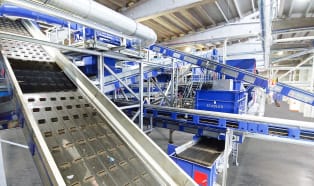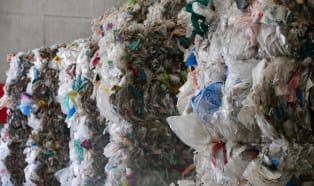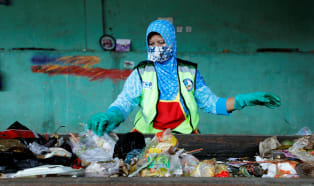
Energy from waste
Vecoplan shredder in use at FBSerwis in Poland Waste recycler FBSerwis opts for VVZ 2500 from Vecoplan to pre-shred solid municipal waste.

Vecoplan shredder in use at FBSerwis in Poland Waste recycler FBSerwis opts for VVZ 2500 from Vecoplan to pre-shred solid municipal waste.

As the 2030 Agenda targets loom, environmental service companies are increasingly incorporating in their business plans investments in recycling facilities capable of bringing us closer to the zero waste goal by turning it into secondary raw materials that can be returned to the commercial cycle with minimal waste.

Tomra and a Norwegian waste sorting plant have demonstrated that mixed waste sorting prior to disposal is a superior solution to separate collection.

After last week's fire of one of the raw material warehouses, ML Polyolefins has resumed production. Following the firefighting operation, full production capacity was reached on 20 November 2021.

FCC Medio Ambiente has completed the renovation of the CITR (Centro Integral de Tratamiento) waste management facility located in Las Marinas, El Campello, in the Alicante province, which it has been managing since April 2009.

High-quality recycling starts with targeted collection.

Purchase of the company BTB PET-Recycling to give Alpla access to the bottle-to-bottle loop in Germany.

School milk in Upper Austria is now packaged in 100% sustainable cups made of recycled PET (rPET). The project is revolutionizing the food packaging market and proves that a sustainable circular economy is possible.

The varying and constantly changing composition of waste materials poses a challenge for designers of sorting plants, which need to deliver consistently high purity rates while managing an increasing degree of complexity.

The injection moulding machine manufacturer has financed the collection of at least 120 tons of plastic waste in order to reclaim the recycling materials while at the same time contributing to the fight against poverty.

Ineos Styrolution, the global leader in styrenics, has today announced the availability of mechanically recycled polystyrene in EMEA. Production of the new “Styrolution PS ECO 440” is based on Tomra’s high-quality NIR sorting process delivering a polystyrene purity of more than 99.9%.

Borealis is pleased to announce today on World Ocean Day a significant financial commitment to expand Project STOP, an initiative it co-founded with SYSTEMIQ in 2017 to prevent plastic waste from entering the world’s oceans.